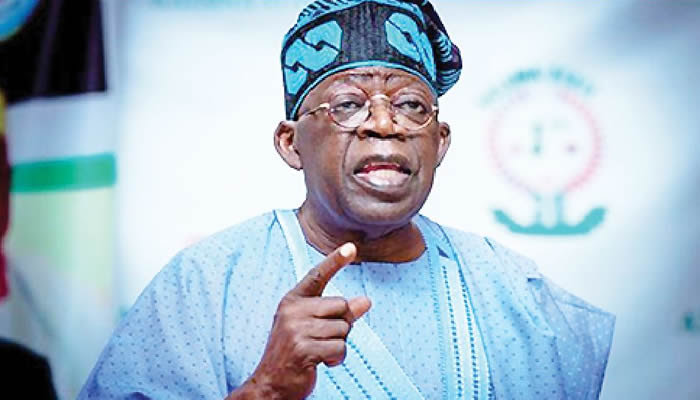President Bola Tinubu has asked electricity generation companies to allow the Federal Government additional time to verify and validate claims of longstanding debts, while granting anticipatory approval for a N4 trillion bond programme to address the sector’s liquidity challenges.
The President made this appeal during a meeting on Friday with the Association of Power Generation Companies, led by retired Colonel Sani Bello, at the Presidential Villa in Abuja.
The Special Adviser to the President on Information and Strategy, Bayo Onanuga, provided details of the closed-door meeting in a statement titled, ‘President Tinubu meets Chairmen of GENCOs, pledges to resolve longstanding debt claims.’
Despite the privatization of Nigeria’s power generation and distribution sectors in 2013, systemic issues, such as inadequate tariff recovery, subsidy arrears, unreliable gas supply, energy theft, and limited transmission capacity, have continuously starved the market of liquidity.
As it stands, GENCOs receive only partial payments from the Nigerian Bulk Electricity Trading Company on their monthly invoices, leading to mounting arrears and dependence on short-term bank loans with high interest rates.
Tinubu’s signing of the Electricity Act 2023 marked a major reform push, emphasizing cost-reflective tariffs, metering, and network upgrades.
While these steps have boosted collections, legacy debt and gas shortages still hinder growth and new investments.
Amid tightening credit lines from banks, GENCOs have raised alarm over the risk of foreclosures across the value chain if the debts are not addressed urgently.
Acknowledging the gravity of the situation, Tinubu emphasized the need for a thorough audit before any payment is made.
“I accept the assets and liabilities of my predecessors, and there is no question about that. But that acceptance must be on credible grounds.
“I need to wear the audit cap of verifiability, authenticity, and the fact that this inheritance is not a mere deodorant but a support structure for critical economic and industrial promotion,” he said.
He appealed to the GENCOs and their financial backers to be patient as the government engages auditors and legal teams to assess the validity of claims.
“We are here. So, market it to your other colleagues. Give us time to do verification and validation of the numbers,” the President added.
Restating his support for a liberalized power sector, Tinubu assured stakeholders that long-standing issues were now being directly confronted. He also cautioned banks to hold off on asset seizures.
“This is a longstanding issue that is now being dealt with. I know how much we have been able to save on fuel subsidies. We introduced the alternative, CNG, to bring relief back to the people.
To our friends in the banking sector, I ask that we avoid foreclosures. Sharpen your pencils, but keep an eraser handy. Let’s persevere together,” he advised.
Describing electricity as humanity’s most transformative discovery in a millennium, Tinubu reaffirmed its centrality to national development and individual dignity.
Special Adviser to the President on Energy, Olu Verheijen, noted that the government is facing a debt crisis rooted in years of tariff deficits and unfulfilled market obligations.
“As of April 2025, the Federal Government is carrying a verified exposure of N4tn in debts to GENCOs, an accumulation dating back to 2015.
“We have since sat with 27 GENCOs—not all of them are here today—and reviewed their PPAs and gas sales agreements to understand the legitimacy of their claims. The GENCOs claimed about N4tn from 2015 to the end of 2023,” she said.
She further explained that NBET had verified N1.8 trillion of the claims, while N200 billion in unfunded subsidies have further increased government liabilities.
“Since that period, we have had N200bn in unfunded subsidies that have accumulated the Federal Government’s liability. So, as of April 2025, the total exposure that we are carrying at the moment is N4tn,” Verheijen added.
However, she emphasized that the final figure could be revised downward after full validation.
“While there is an anticipatory approval of this N4tn bond programme, it is subject to negotiations and final settlement of agreements. Only the amounts that the Federal Government validly owes are the things that will make it into the issuance by DMO,” she noted.
Minister of Power, Adebayo Adelabu, lauded the President’s engagement with the sector and listed major milestones recorded under Tinubu’s leadership.
“Your Excellency, your presence at this meeting is a clear testament to your unwavering commitment to the sustainability, stability, and long-term development of Nigeria’s power sector. Under your leadership, we have recorded critical milestones in less than two years,” Adelabu said.
He pointed to the Electricity Act 2023, the first Integrated National Electricity Policy in 24 years, over $2 billion in new private capital, and a 70% increase in annual sector revenue, from N1 trillion in 2023 to N1.7 trillion in 2024.
Adelabu added that installed generation capacity rose to 14,000 MW, with an all-time peak of 5,801 MW and a record daily energy delivery of 120,370 MWh on March 4, 2025.
He noted 2025 has witnessed no national grid collapses, thanks to the Presidential Power Initiative, which added over 700 MW to transmission capacity.
Progress has also been made in closing Nigeria’s metering gap through the N700 billion Presidential Metering Initiative and the World Bank-supported DISREP, which has delivered 300,000 smart meters out of 3.45 million procured.
Still, Adelabu warned of the risk that the debt crisis poses to reforms.
“Mr. President, given the grave implications of this debt overhang, including the risk of a nationwide shutdown of generation assets, I humbly seek your immediate support for defraying these obligations, even if partially, over a defined period,” he said.
Business leaders, Tony Elumelu and Kola Adesina also urged for swift government action.
“Mr. President, we’ve come to you as a last hope. The generating companies are heavily indebted to banks, and foreclosure threats are real, not because we’re not doing our jobs, but because the system owes us trillions,” Elumelu said.
“Before you took office in 2023, we lost 97 per cent of our daily oil production. Today, we are retaining 98 per cent. That’s transformation. Investors are seeing greater stability and predictability. We don’t need power to complete your transformation, we need power to enable it. Power is critical to unlocking Nigeria’s full potential. We urge you to help solve this debt problem.”
Adesina echoed concerns about liquidity and gas supply shortfalls, stating, “Liquidity is the oxygen of our business. Without urgent intervention, generation capacity will stall, and Nigeria’s industrial and economic ambitions will be jeopardised.
“The plants in the Afam axis are underperforming because we have not paid gas suppliers. We propose unlocking 800 million cubic feet of gas through NLNG to boost supply to these power plants.”
The meeting was attended by key officials including Chief of Staff Femi Gbajabiamila, Coordinating Minister of the Economy and Finance Minister Wale Edun, Minister of Information Mohammed Idris, regulators, and other stakeholders, signaling the full weight of government commitment to solving the sector’s long-running debt dilemma.







